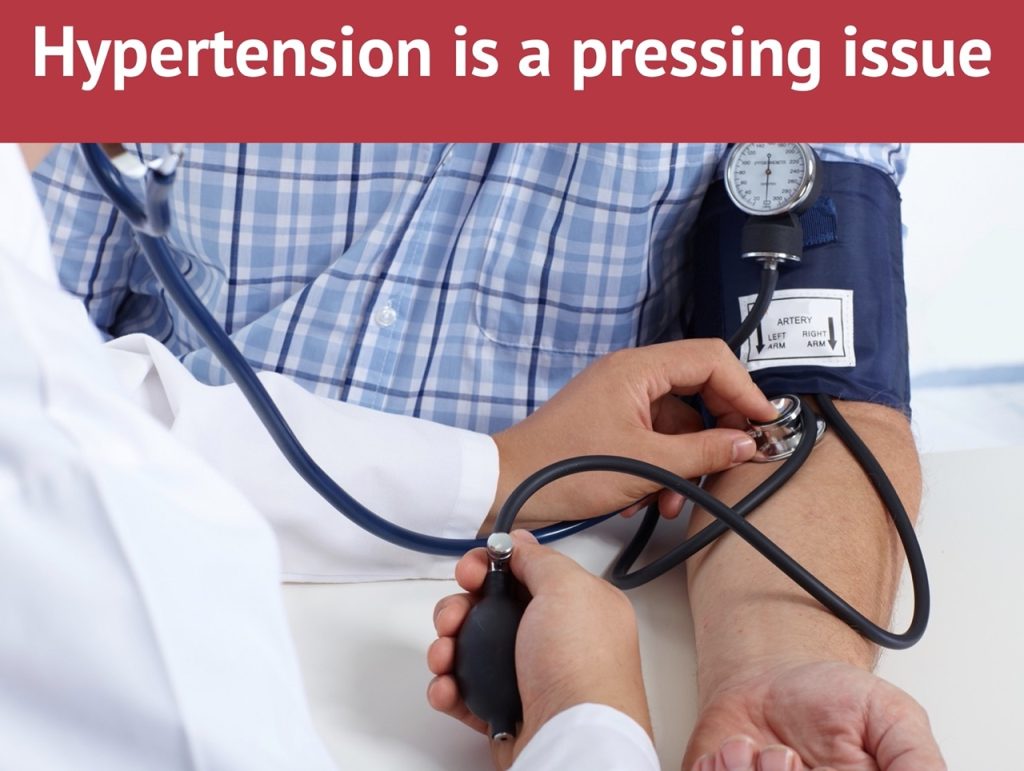1. What does HBP do?
Blood pressure is the pressure of blood pushing against the walls of your arteries. Arteries carry blood from your heart to other parts of your body.
Healthy arteries are flexible, strong and elastic. Their inner lining is smooth so that blood flows freely, supplying vital organs and tissues with nutrients and oxygen.
High blood pressure (hypertension) gradually increases the pressure of blood flowing through the arteries. Hypertension may cause:
- Damaged and narrowed arteries. High blood pressure can damage the cells of the arteries’ inner lining. When fats from the diet enter the bloodstream, they can collect in the damaged arteries. Eventually, the artery walls become less elastic, limiting blood flow throughout the body.
- Aneurysm. Over time, the constant pressure of blood moving through a weakened artery can cause a section of its wall to enlarge and form a bulge (aneurysm). An aneurysm can potentially rupture and cause life-threatening internal bleeding. Aneurysms can form in any artery, but they’re most common in the body’s largest artery (aorta).
High blood pressure usually has no warning signs or symptoms, and many people do not know they have it. Measuring your blood pressure is the only way to know whether you have high blood pressure.
2. What do the numbers mean?
High blood pressure can be measured by your doctor, who will assist you to make treatment decisions by reviewing your systolic and diastolic blood pressure levels and comparing them to levels found in certain guidelines.
The American College of Cardiology/American Heart Association Guideline for the Prevention, Detection, Evaluation, and Management of High Blood Pressure in Adults (2017 Guideline):
| Normal Range | systolic: less than 120 mm Hgdiastolic: less than 80 mm Hg |
| Elevated | systolic: 120–129 mm Hgdiastolic: less than 80 mm Hg |
| High Blood Pressure(Hypertension) | systolic: 130 mm Hg or higherdiastolic: 80 mm Hg or higher |
Systolic (the top reading) measures the pressure in your arteries when your heart beats. Diastolic (the bottom reading) measures the pressure in your arteries when your heart rests between beats.
3. What causes high blood pressure?
High blood pressure usually develops over time. Common factors that can lead to this disease include:
- A diet high in salt, fat and / cholesterol
- Chronic conditions such as kidney and hormone problems, diabetes, and high cholesterol
- Family history, especially if your parents or other close relatives have high blood pressure.
- Other unhealthy lifestyle choices – even not getting enough regular physical activity.
4. Now, what does high blood pressure lead to?
High blood pressure, affects the arteries by making them less elastic, which decreases the flow of blood and oxygen to your heart can cause many heart problems, including:
· 冠状动脉疾病. Arteries narrowed and damaged by high blood pressure have trouble supplying blood to the heart. Too little blood flow to the heart can lead to chest pain (angina), irregular heart rhythms (arrhythmias) or a heart attack.
· Enlarged left heart. High blood pressure forces the heart to work harder to pump blood to the rest of the body. This causes the lower left heart chamber (left ventricle) to thicken. A thickened left ventricle increases the risk of heart attack, heart failure and sudden cardiac death.
· Heart failure. Over time, the strain on the heart caused by high blood pressure can cause the heart muscle to weaken and work less efficiently. Eventually, the overwhelmed heart begins to fail.
5. What can I do to manage or prevent high blood pressure?
Many people with high blood pressure can lower their blood pressure into a healthy range or keep their numbers in a healthy range by making lifestyle changes. Some of these changes include:
- Getting at least 150 minutes of physical activity each week (about 30 minutes a day, 5 days a week)
- Not smoking
- Eating a healthy diet, including limiting sodium (salt) and animal fats
- Limiting the intake of alcohol
- Keeping a healthy weight
- Managing stress
By taking action to lower your blood pressure, you can help protect yourself against heart disease and stroke, also sometimes called cardiovascular disease (CVD).
On 17 May the world is reminded on World Hypertension Day of the impact that this quiet killer has on the population. At 德国心脏中心 our team is on standby to support our patients in taking a thorough look at their health and family history, diagnosing symptoms and preparing an individualized treatment plan to protect and treat them. Contact us today to have your blood pressure checked!

